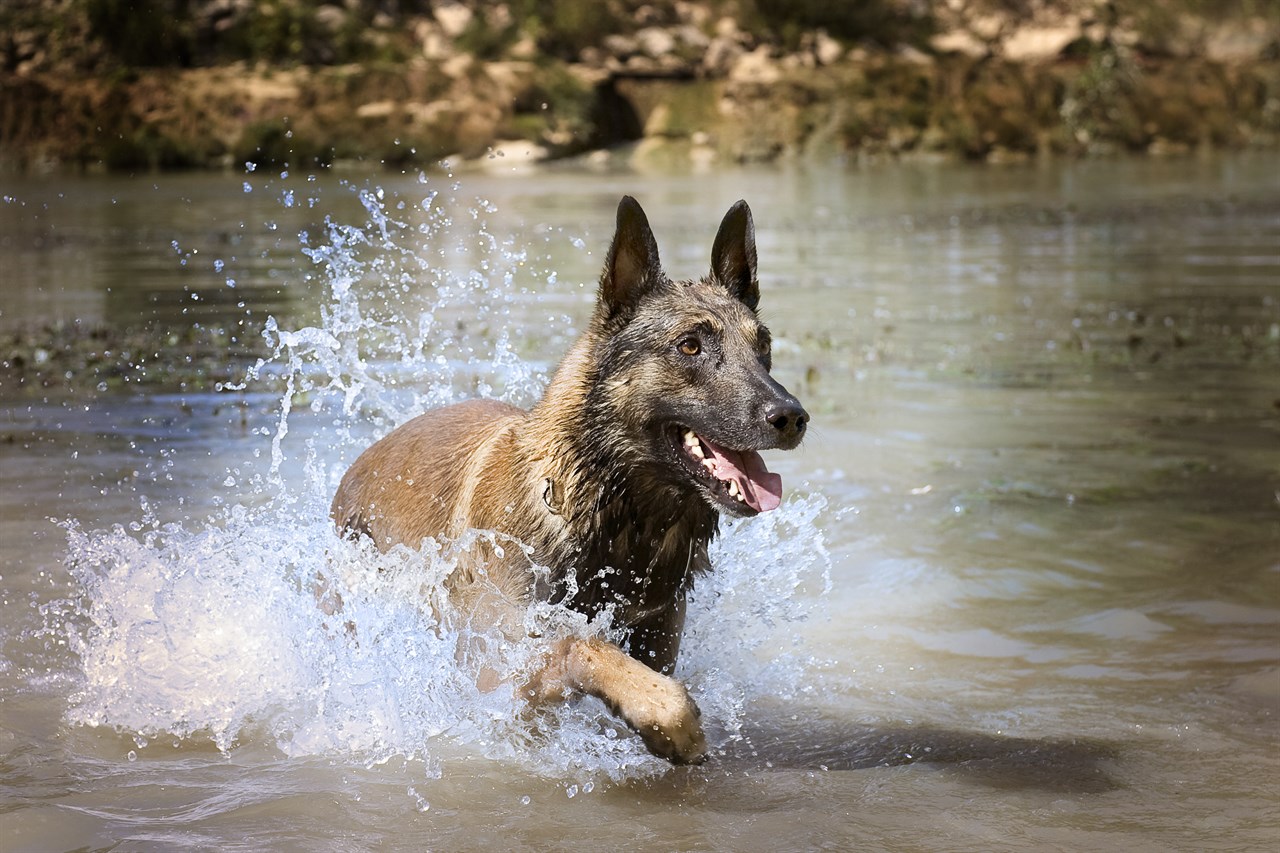Belgian Shepherd Dog Temperament and Personality

Belgian Shepherd Dogs are renowned for their complex and captivating personalities. Their temperament is a blend of intelligence, loyalty, and a strong work ethic, making them versatile and capable in various roles, from family pets to working dogs. Let's explore the temperament and behaviour of the Belgian Shepherd.
Intelligence
Belgian Shepherds are among the most intelligent dog breeds globally, and their sharp minds are evident in their ability to learn quickly and problem-solve. This intelligence requires regular mental stimulation, as bored Belgians can resort to destructive behaviours.
Loyalty
These dogs are fiercely loyal to their families. They often form strong bonds with their human companions and are known for their protective instincts. Belgian Shepherds will go to great lengths to keep their loved ones safe.
Alertness
Belgian Shepherds are highly alert and vigilant. They make excellent watchdogs due to their innate sense of awareness, and they will alert their owners to any potential threats or disturbances.
Energy and Drive
These dogs are known for their boundless energy and work drive. They thrive on physical activity and require regular exercise to maintain their mental and physical well-being. Belgian Shepherds excel in dog sports like agility, obedience, and herding.
Trainability
Their intelligence and eagerness to please make Belgian Shepherds highly trainable. They respond well to positive reinforcement training methods and thrive when provided with tasks that engage their minds.
Socialisation
Early socialisation is essential for Belgian Shepherds to ensure they are well-adjusted and comfortable in various social settings. Proper socialisation can help prevent behavioural issues, including shyness or aggression.
Independence
While they are loyal and affectionate, Belgian Shepherds also possess a degree of independence. They are not typically clingy dogs but prefer to be near their owners, often keeping a watchful eye.
Protective Instincts
Belgian Shepherds have strong protective instincts, which can sometimes be misconstrued as aggression. They will defend their family if they perceive a threat, making them excellent guard dogs. However, this protective nature should be managed through training and socialisation to prevent overzealous guarding behaviours.
Affection
Despite their vigilant and protective nature, Belgian Shepherds can be affectionate with their families. They enjoy spending time with their human companions and may seek physical affection when not engaged in their duties.
Adaptability
Belgian Shepherds can adapt to various living situations, but they thrive in environments that provide ample opportunities for exercise and mental stimulation. They are not well-suited for a sedentary lifestyle.
Do Belgian Malinois attach to one person?
Belgian Malinois can form strong attachments to one person, but they are also known for their loyalty to their entire family. Proper socialisation and training can help ensure they have positive relationships with all household members.
Are Belgian Malinois more protective than German Shepherds?
Both Belgian Malinois and German Shepherds are protective breeds, but the level of protection can vary among individuals. A dog's protective instincts are influenced by genetics, training, and socialisation.
What is the personality of a Belgian Shepherd dog?
The personality of a Belgian Shepherd is characterised by intelligence, loyalty, alertness, and a strong work ethic. They are known for their protective nature, boundless energy, and eagerness to please.
Are Belgian shepherds considered an aggressive breed?
Belgian Shepherds are not inherently aggressive, but their protective instincts can sometimes be mistaken for aggression. Proper training, socialisation, and responsible ownership are key factors in preventing aggressive behaviours.
Do Belgian shepherds bond with one person?
Belgian Shepherds can form strong bonds with one person or their entire family. Their loyalty and affection are not limited to a single individual.
Are Belgian shepherds obedient?
Belgian Shepherds are highly trainable and generally obedient when provided with consistent training and positive reinforcement. Their intelligence and work ethic make them eager to follow commands.
Are Belgian sheepdogs aggressive?
Belgian Sheepdogs, like other Belgian Shepherd types, are not inherently aggressive. However, their protective instincts may lead to aggression in certain situations if not properly managed and trained. Early socialisation is crucial in preventing aggressive behaviour.
Belgian Shepherd Dog puppies for sale
- Find Belgian Shepherd Dog puppies for sale in ACT
- Find Belgian Shepherd Dog puppies for sale in NSW
- Find Belgian Shepherd Dog puppies for sale in NT
- Find Belgian Shepherd Dog puppies for sale in QLD
- Find Belgian Shepherd Dog puppies for sale in SA
- Find Belgian Shepherd Dog puppies for sale in TAS
- Find Belgian Shepherd Dog puppies for sale in VIC
- Find Belgian Shepherd Dog puppies for sale in WA